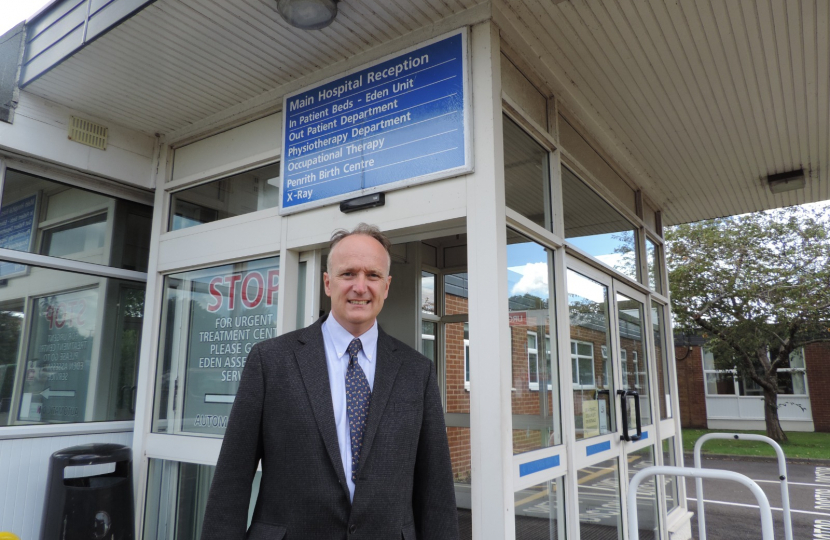
The annual NHS flu vaccination programme for children aged 2-3, school age children and children over 6 months with certain health conditions is getting underway, with parents starting to receive invites.
Dr Neil Hudson MP said:
“Unfortunately, some children and their vulnerable loved ones need to seek treatment for the flu or its complications every winter. A simple and speedy nasal spray will help young folk to better protect themselves and those they interact with. That is why I am really encouraging parents and guardians to engage with the NHS’ vaccination programme.”
The UK Health Security Agency and NHS England are urging parents to ensure children’s school consent forms are completed, and that eligible pre-schoolers are booked in for GP appointments.
Over 8 million children in Reception to Year 11 will be offered the free nasal spray flu vaccine, delivered in schools by immunisation teams up and down the country. Children aged 2 and 3 (on or before 31 August) are eligible for the free nasal spray via their GP practice.
Children aged between 6 months and 2 years with a long-term health condition that makes them at higher risk from flu will be offered a flu vaccine injection instead of the nasal spray. This is because the nasal spray is not licensed for children under 2 years old.
Dr Conall Watson, Public Health Consultant and Lead Flu Epidemiologist at UKHSA, added:
“Flu can be more than just an unpleasant illness in children – for some an infection is life-threatening, including kids who are normally very active and healthy. Flu vaccines give vital protection – not just keeping kids well, but also out of hospital. Each winter thousands of children require treatment in hospital for flu or its complications. Many of these episodes could be prevented by a simple nasal spray. On top of helping to keep your child healthy, the flu vaccine also helps stop the spread of flu in the community – helping to protect those who are more vulnerable and the elderly such as grandparents.
“When you get the electronic or paper consent form from the NHS school immunisation team, please make sure you return it, so your child doesn’t miss their nasal spray vaccination session.
“If you have a pre-schooler aged 2 or 3 on the 31st of August you should make an appointment to get their nasal spray vaccination at the GP practice.”
The nasal spray vaccine does not cause flu as the viruses in it have been weakened to prevent this from happening, helping each child to build up immunity. This means vaccinated children will be better able to fight off flu this autumn and winter. The vaccine is absorbed very quickly in the nose, so even if a child sneezes immediately after having had the spray, the vaccine will still be effective.
Side effects of the nasal spray are typically mild, if present at all. Children may develop a runny or blocked nose, headache, general tiredness and some loss of appetite. However, these are much milder than developing flu or complications of flu, and some of these will be due to common cold viruses circulating at the time the flu vaccine is given.
NHS Director of Vaccinations and Screening Steve Russell said:
“With children recently returning to school, it is essential that they are vaccinated against flu as quickly as possible to protect themselves and their vulnerable loved ones.
“The fast and easy nasal spray has a proven record of protecting children who need it most, with the NHS offering it to the majority of children this year.
“I would encourage anyone with questions to come forward and speak to your GP or other healthcare professionals for advice.”
Flu rebounded last winter after being kept low since March 2020 by COVID-19 control measures. The UK Health Security Agency’s preliminary analysis found that deaths linked to flu last winter were the highest since 2017-18. 10,000 children were hospitalised last winter due to the infection, many of which could have been prevented with vaccination, which cuts the risk of hospitalisation by two thirds.
Flu vaccination is the best way to protect children from serious illness and limit the spread of the virus to more vulnerable family and friends. Flu can be a very unpleasant illness in children causing fever, extreme tiredness, aching muscles and joints, stuffy nose, dry cough and a sore throat. Complications of flu include painful inflammation inside the ear and pneumonia that makes breathing difficult.
Each winter thousands of children need to go to hospital for treatment, including intensive care, with children under the age of 5 years having one of the highest rates of hospital admissions due to flu. By getting vaccinated, your child also protects others around them, including babies, grandparents and people with weak immune systems.
If your child has a medical condition that makes them more at risk from flu, such as asthma or cerebral palsy, you can get them vaccinated at the GP surgery if you don’t want to wait for the school session. Children who can’t have the nasal spray for medical or faith reasons should have an injected flu vaccine instead, also provided free by the NHS.
Infections such as flu, RSV (respiratory syncytial virus), norovirus (the winter vomiting bug) and scarlet fever (caused by group A strep) usually start to rise throughout autumn and winter. Keeping children off school when unwell is important to slowing the spread of many illnesses.
- If your child is unwell and has a fever, they should stay home from school or nursery until they feel better, and the fever has resolved.
- If your child has diarrhoea and/or vomits, they should stay off school or nursery for at least 48 hours after their symptoms clear up.
- Children with a runny nose, sore throat, or slight cough who are otherwise well and do not have a high temperature can continue to attend their education or childcare setting.




